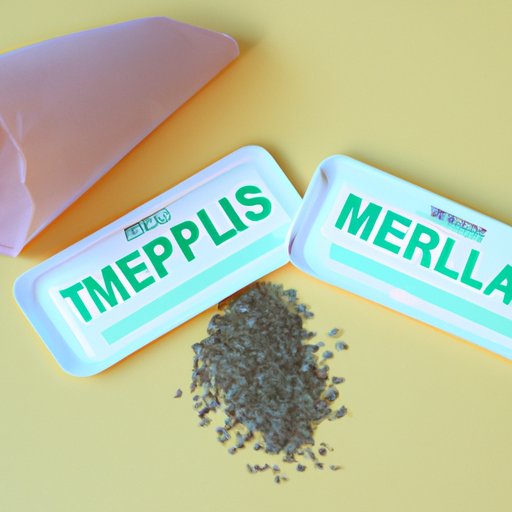
Introduction
Constipation is a common experience during pregnancy. It occurs due to hormonal changes and the pressure on the intestines caused by the growing uterus. While it is an uncomfortable symptom, it can be especially concerning for pregnant women who are hesitant about taking medications. In particular, many are unsure whether or not it is safe to take stool softeners while pregnant.
Safe Solutions: Can You Relieve Constipation with Stool Softeners During Pregnancy?
Stool softeners are medications that can be used to ease the passage of stool through your intestines. They work by drawing water into the stool, making it softer and easier to pass. The good news is that there are many stool softeners that are considered safe for pregnant women to take.
Some examples of safe stool softeners for pregnancy include:
- Colace (docusate sodium)
- Miralax (polyethylene glycol)
- FiberCon (calcium polycarbophil)
It is important to note that laxatives, on the other hand, are not recommended for pregnant women. Laxatives can be much more aggressive and can lead to dehydration, electrolyte imbalances, and other complications.
Finding Relief: The Best Stool Softeners for Pregnant Women
If you are dealing with constipation during pregnancy, there are a few different types of stool softeners that you can consider. Colace is perhaps the most commonly used stool softener during pregnancy. It is available in capsule and liquid form, and it is considered safe for use during pregnancy. It is important to be mindful of dosage, as taking too much can lead to diarrhea.
Miralax is another common stool softener. It is available in powder form, and it is a gentle and effective option. This medication is also safe for use during pregnancy, and it does not lead to dependency or dehydration.
FiberCon is a fiber-based stool softener. It is a bulk-forming agent that can help to prevent constipation. It does not cause dependency, and it is generally well-tolerated by pregnant women.
The Risk Factors: When You Shouldn’t Take Stool Softeners While Pregnant
While stool softeners are generally considered safe for pregnancy, there are some circumstances under which they should be avoided. If you have any of the following conditions, you should speak to your healthcare provider before taking stool softeners:
- Rectal bleeding
- Vomiting
- Abdominal pain
- Fever
- Nausea
- Bowel obstruction or impaction
In addition, if you are taking any other medications, you should check with your healthcare provider before taking stool softeners. This is because some medications can interact with stool softeners and cause unwanted side effects.
Home Remedies: Natural Ways to Relieve Constipation During Pregnancy
If you are hesitant about taking medications during pregnancy, there are a number of natural remedies that you can try to relieve constipation. These include:
- Incorporating more fiber into your diet
- Drinking plenty of water
- Exercising regularly
- Meditating or practicing relaxation exercises
- Applying heat to your lower abdomen
It is important to be mindful of the safety of natural remedies. For example, some herbs, such as senna and cascara, can be harmful during pregnancy. Always consult with your healthcare provider before trying any new remedies.
Talking to Your Doctor: How to Have an Informed Conversation About Stool Softeners While Pregnant
If you are struggling with constipation during pregnancy, it is important to speak to your healthcare provider about your concerns. You can start by asking questions such as:
- What is causing my constipation?
- What are the treatment options?
- Is it safe for me to take stool softeners during pregnancy?
Your healthcare provider can help you make an informed decision about the best treatment option for you and your baby.
Community Perspectives: What Pregnant Women Need to Know About Stool Softeners and Constipation
If you are feeling alone or overwhelmed by your constipation during pregnancy, it can be helpful to hear from other women who have gone through the same experience. Here are some real-life stories and tips:
“I was hesitant to take stool softeners during pregnancy, but my doctor assured me that they were safe. I ended up taking Colace and found it to be very effective.” – Sarah, mother of two
“I found that drinking a lot of water and eating fiber-rich foods helped me relieve my constipation. I also went for regular walks and did prenatal yoga.” – Maya, expectant mother
“I had never experienced constipation before pregnancy, so I was really caught off guard when it struck. I spoke to my doctor and ended up taking Miralax, which worked really well for me.” – Emily, mother of one
Conclusion
Constipation is a common symptom during pregnancy. While it can be uncomfortable, it is important to know that there are safe and effective treatments available, including stool softeners. By speaking to your healthcare provider and taking care of yourself, you can find relief from this uncomfortable symptom and focus on enjoying your pregnancy.




